| Grammar |
-MASU (-ます) -MASEN (-ません) -MASHITA (-ました)
The suffix -MASU (ます) is attached to the conjunctive base of a verb to make one's statement polite.
VERB (conjunctive base) + MASU
Here’s a brief reminder of the construction of the conjunctive base of a verb:
For “godan” verbs, replace the ending U with an I, then add the suffix -MASU.
| 飲む (nomu) | 飲みます (nomimasu) |
| 遊ぶ (asobu) | 遊びます (asobimasu) |
For “ichidan” verbs, replace RU with -MASU.
| 食べる (taberu) | 食べます (tabemasu) |
| 答える (kotaeru) | 答えます (kotaemasu) |
There are a few irregular forms that must be learned by heart:
| 来る (kuru) | 来ます (kimasu) |
| する (suru) | します (shimasu) |
| なさる (nasaru) | なさいます (nasaimasu) |
| おっしゃる (ossharu) | おっしゃいます (osshaimasu) |
| いらっしゃる (irassharu) | いらっしゃいます (irasshaimasu) |
| くださる (kudasaru) | くださいます (kudasaimasu) |
| ござる (gozaru) | ございます (gozaimasu) |
ARU “ある” and IRU “いる” become ARIMASU “あります” and IMASU “います” respectively.
MASU (ます) is actually the present and future form. To express the negative form or the past tense, other forms exist of course.
PRESENT
| Kyou wa eigakan ni ikimasu. |
| Today, I am going to the cinema. |
| Present = -masu |
FUTURE
| Ashita wa eigakan ni ikimasu. |
| Tomorrow, I will go to the cinema. |
| Future = -masu |
PAST
| Kantan ni kotaemashita. |
| I answered easily. |
| Past = -mashita |
NEGATIVE FORM
| Mou niku o tabemasen. |
| I don’t eat meat anymore. |
| Negation = -masen |
NEGATIVE FORM OF THE PAST
| Shukudai o shimasen deshita. |
| I didn’t do my homework. |
| Negative Past = -masen deshita |
Always keep in mind that ます let's you express yourself in a polite way. In dictionaries, verbs are not found in this form, but in the plain form (also called the dictionary form, for this reason). The plain form is very often used to talk to friends or family. To make the difference clear, observe again the difference in verb endings in the plain and polite forms:
|
PLAIN |
POLITE |
|
| To eat | 食べる (taberu) | 食べます (tabemasu) |
| To drink | 飲む (nomu) | 飲みます (nomimasu) |
| To look | 見る (miru) | 見ます (mimasu) |





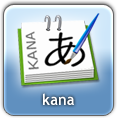
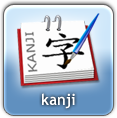
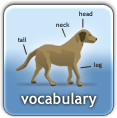


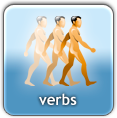
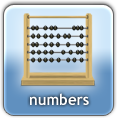


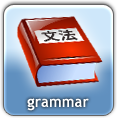



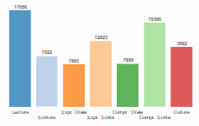

Goldenangel3341
WhyCoy